Are you planning a move to British Columbia but looking for a quieter location away from the big cities? If so, you may be interested in living in Squamish, an attractive town surrounded by impressive mountains and coastline, just one of the many attractive small towns in BC.
Squamish is an excellent choice for anyone who enjoys outdoor life, with easy access to mountains, rivers and the ocean. Hiking and biking trails weave in and around the town, and the area is popular with rock climbers, kayakers, and kite and windsurfers.
We will give you all the key information about living in Squamish, BC. In addition, we will provide you with an unbiased view of the pros and cons of living in this town.
Living In Squamish, BC – The Facts
Here are some key facts about this lakeside town for anyone interested in living in Squamish, BC.
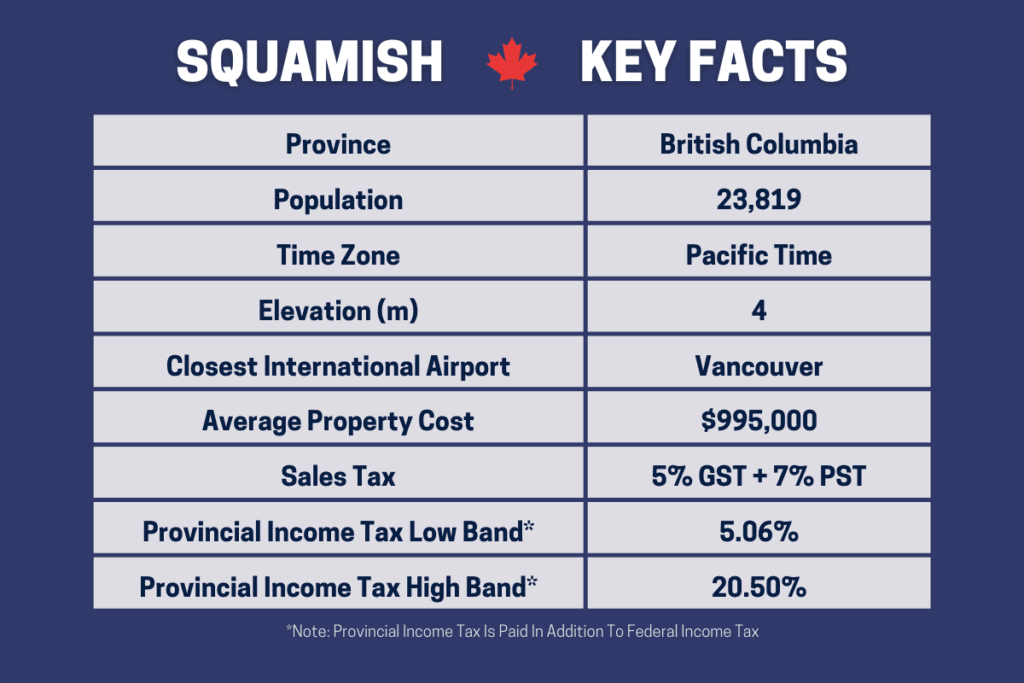
Where Is Squamish BC?
Squamish is in southwestern BC at the top of the Howe Sound. The town is very well situated; you have easy access to the city of Vancouver (around an hour’s drive to the south) and are just an hour away from Whistler, a world-class ski resort.
The closest international airport is Vancouver International Airport, a major airport with flights to around 75 international destinations. Driving there from Squamish will take approximately 80 minutes (depending on traffic).
What Is The Population Of Squamish in 2023?
The population of Squamish in 2023 is around 24,000, based on the latest government of BC estimates released at the start of the year.
The town has seen steady growth in recent years. The latest federal census data (released in 2022) showed a population of 23,819, representing a growth in the population of Squamish of 22.2% between 2016 and 2021.
The average age of the population is 37.9, which is 4 years below the national average of 41.9. This reflects the popularity of the town with young people seeking an active outdoor lifestyle.
The population of Squamish is predominantly white and English speaking. According to the latest census data, visible minorities account for around 15% of the population; this is higher than most BC communities.
By far, the largest visible minority group living in Squamish is South Asian (around 43%), followed by Filipino, Latin American and Chinese.
What Is The Weather In Squamish, BC, Like?
Most of Canada experiences cold, harsh winters with pleasant, moderately hot summers. However, BC’s coastal location and mountain ranges mean its climate isn’t typical of Canada.
You will find significant variations in the climate even within the province. Overall the BC weather is milder and wetter than the rest of Canada. The south coast has the mildest winters in Canada and warm, pleasant summers, while the southern interior has very short winters with long, dry, hot summers.
The weather in Squamish is very mild but quite wet. The average January low is zero degrees C, while the average July high is 23 degrees C. The town has a total annual precipitation of more than 2000mm, most of which falls as rain.
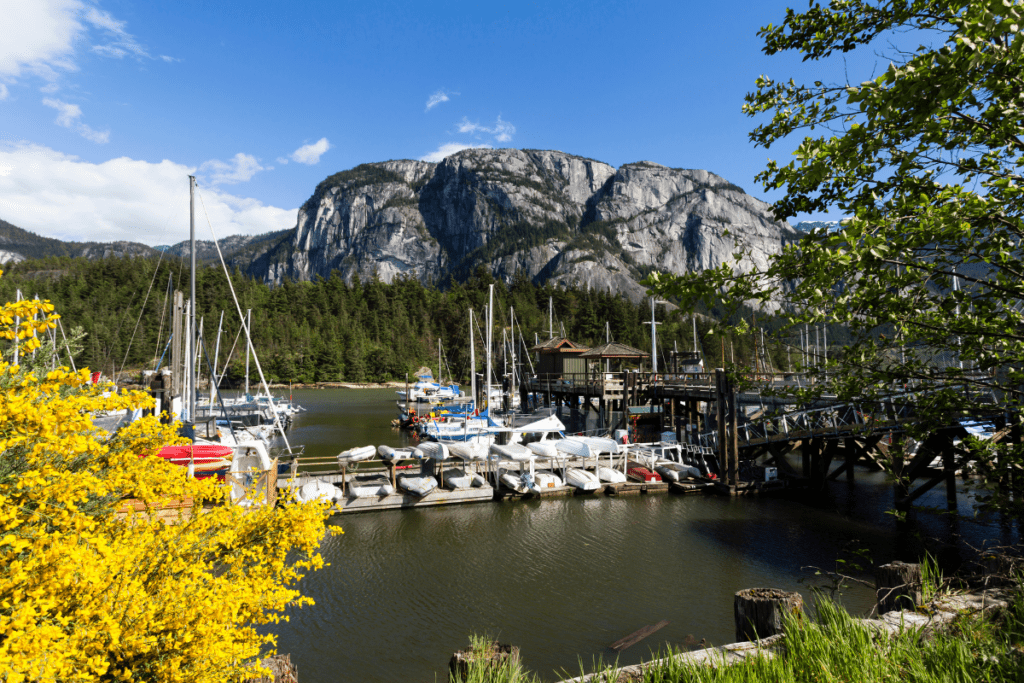
What Is The Cost of Living In Squamish Like?
Most immigrants find the cost of living high in Canada, and BC is one of the more expensive provinces. House prices in BC are around 50% higher than Canadian averages.
Rural areas are cheaper but still subject to higher provincial taxes. Sales tax is 12% on most goods (5% GST plus 7% PST) compared to 5% in provinces such as Alberta, and the top income tax rate is relatively high.
In addition, property prices for Squamish are higher than average for BC and more than 1.5 times the national average. The town is becoming increasingly popular as a tourist destination, with Vancouverites looking to escape city life. This has driven property prices up in recent years.
What Is The Squamish BC Economy Based On?
Historically the economy of the area has been based on forestry and its associated industries. This sector is still very important to the area, but the town also has a thriving tourist industry focused on outdoor recreation. Squamish’s proximity to Vancouver means that it is also a popular weekend destination.
Is Squamish BC A Safe Place To Live?
Canada is one of the safest countries in the world to live in. Crime rates are low, and the country always features near the top of the annual Global Peace Index rankings.
Canada, Quebec, Ontario and the Maritime provinces have the lowest crime rates, while the highest in the territories. BC crime rates are above average for Canada.
However, crime rates in Squamish are significantly lower than BC averages, and it is a very safe place to live.
Are You Planning A Move To Canada?
Are you wondering whether to make the move and have endless questions?
Do you want to find the best neighbourhoods in Mississauga, Ontario, or know whether living in Watrous, Saskatchewan, would be a better option than living in North Battleford, Saskatchewan?
We have the answers to these and many more questions.
What Are The Schools In Squamish, BC, Like?
Canada has a strong and publicly-funded education system, which consistently ranks as one of the best in the world. Education is administered at a provincial level, and BC is renowned for excellent education within Canada.
Squamish has five elementary schools, Don Ross Middle School covers grades 7 to 9, and Howe Sound Secondary covers grades 10-12. French Immersion programs are available in Squamish at Elementary, Middle and Secondary School Levels.
In addition, the St’a7mes School offers programs from Kindergarten to grade 12 that focus on Aboriginal learners. The Sea to Sky Alternate School (a satellite of Howe Sound Secondary) offers alternative pathways to graduation for students whose needs aren’t met in mainstream programs.
What Is The Healthcare In Squamish, BC Like?
Canada has an excellent publicly-funded healthcare system which covers “medically necessary” care. Generally, hospital and doctor visits are covered, while other types of care, such as dental, optical and prescriptions, are funded for certain groups of people.
In Canada, healthcare is administered at a provincial level, so anyone living in Squamish, BC, would be covered through BC Healthcare.
You should be aware that there is currently a shortage of family doctors in much of Canada, and it can be difficult to find clinics taking on new patients. This is especially true of the smaller towns and cities.
The town of Squamish has its own hospital with a wide range of inpatient and outpatient facilities and 24/7 emergency care.
Pros And Cons Of Living In Squamish BC
The pros and cons of living in Squamish, BC, will vary from person to person, but whatever you are looking for, these are key factors for you to consider.
Pros Of Living In Squamish BC
- Beautiful location
- Close to Vancouver
- Close to Whistler
- Low crime rates
- Outdoor activities
- Mild climate
Cons Of Living In Squamish BC
- Expensive
- Wet climate

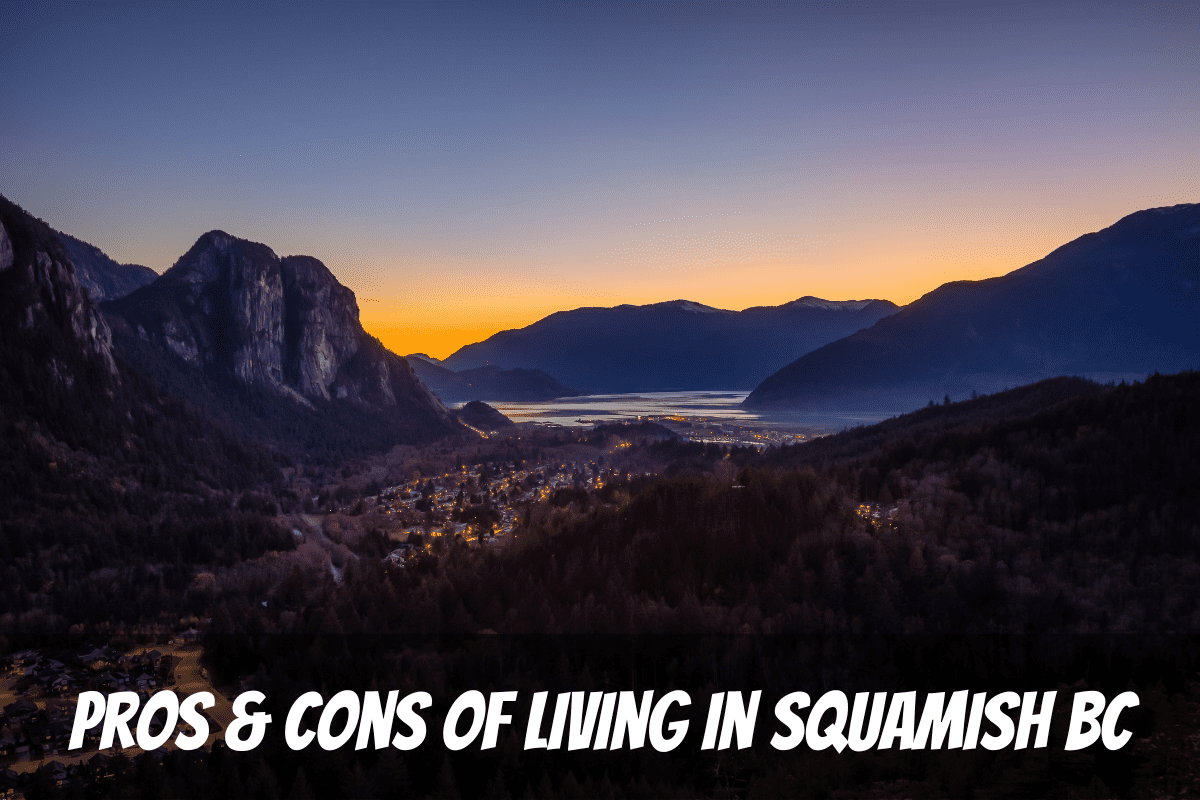
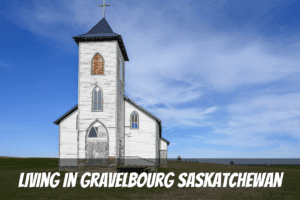
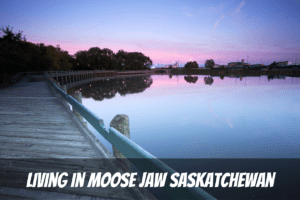
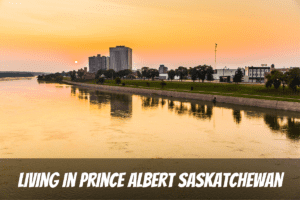
Con – The city is a product of over-development, without enough regard for infrastructure. They’re still navigating issues like sewers, etc., without any slowing of rapid growth. Although it may seem idyllic, it is a suburb of Vancouver. New developments were placed directly in front of the city’s most beloved and prominent mountain, blocking part of its view from the town. They will never stop building and driving wildlife away, while becoming a place people eventually leave.